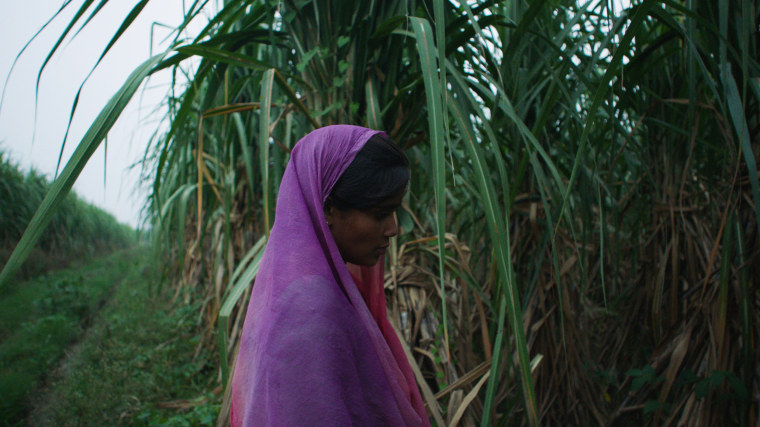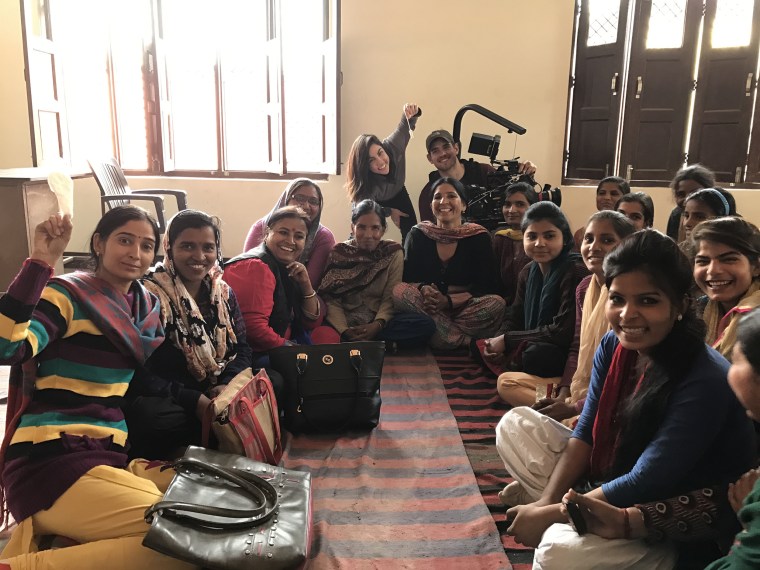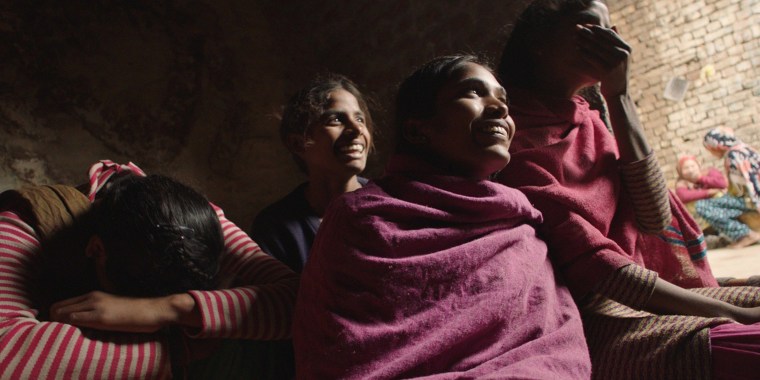For too many young women around the world, "period shame" — the fear that women are impure when they are menstruating — prevents them from going to school, praying in public places or other parts of daily life.
In the documentary “Period. End of Sentence.,” women in India tell of the stigma, shame and lack of access to sanitary protection they must confront every month. Co-produced by a former high school student and her teacher, the film took home the prize for best documentary short at the Feb. 24, 2019, Academy Awards.
"I can't believe a film about menstruation just won an Oscar," a tearful Rayka Zehtabchi said during her acceptance speech at the 91st Academy Awards on Sunday.
Many women in India use old cloths for sanitary protection, often reusing them. And an estimated 88 percent of women in India sometimes resort to using ashes, newspapers, dried leaves and husk sand to aid absorption, according to a 2015 study on menstruation myths.
“I studied until I reached middle school, but when I started having periods, it became really challenging," says one young woman featured in the documentary. "When I got my period, it was very tough for me to change clothes. I had to go somewhere far off."
Looks and comments she'd get from men made her feel ashamed, and taking time to find secret spots to change became too difficult. She became one of scores of women to drop out of school because of their periods.
In 2006, an Indian engineer named Arunachalam Muruganatham won a national award for designing what's known as "the pad machine," which a few people can manually operate, and using sustainable products, create pads.
When Oakland High School English professor Melissa Berton and her then-student Helen Yenser found out about this while attending a U.N. conference, they decided they had to do something.
“It is such a taboo topic, and in the United States as well,” Melissa Berton, producer and English teacher told TODAY.

The two and a group of other high school students formed The Pad Project, partnering with an nonprofit organization called, Action India. Through bake sales, Kickstarter and “yogathons,” they raised enough money to purchase a pad machine ($12,000) and produce a documentary.

“Once we began to talk about it, the response has just been phenomenal, with just everybody all along saying, ‘What can we do to help?’” Berton said.
The Pad Project works to raise money for more pad machines and one year’s worth of supplies. After that, the profits made from selling pads sustains a microeconomy, employing residents and helping women in the area.
Yenser and Berton co-produced the Netflix documentary with Lisa Taback and Garrett Schiff. It was directed by 25-year-old Rayka Zehtabchi.
“I think when I went there and was face to face with the women and talking to them in detail about their experience and building their relationships with them, it became really clear to me that it was a really big source of shame,” said Zehtabchi. "It’s held so many of the women back, for so long."
“The women were really hungry for this type of machine and to be able to start their own business,” the director said.
Yenser is now a graduate school at University of Southern California. But for her, the project’s impact is just beginning — with people reaching out from areas in Pakistan, Rajasthan, Nepal and beyond.
“Now that the documentary is on Netflix, I actually get an email about every five minutes from someone in a different country either asking for a pad machine in their village or a village they know of,” Yenser said.

